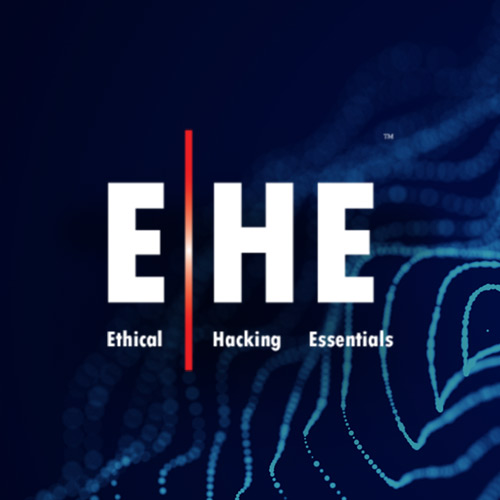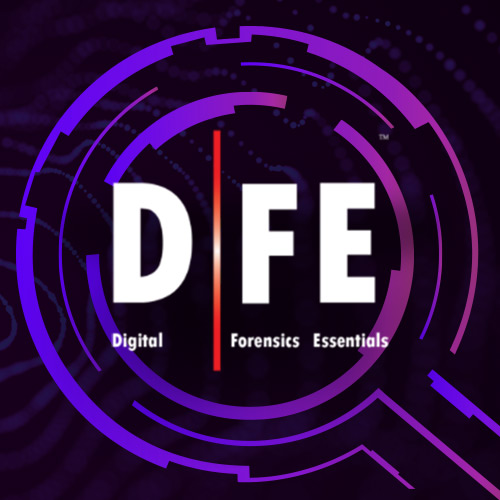Modul 01
Network Security Fundamentals
Network Security Fundamentals
Identification, Authentication and Authorization
Administrative Controls
Physical Controls
Technical Controls
Virtualization and Cloud Computing
Wireless Network Security
Mobile Device Security
IoT Device Security
Cryptography and PKI
Data Security
Network Traffic Monitoring
NDE – Network Defense Essentials
What is NDE?
Network Defense Essentials covers the fundamental concepts of information security and network defense. This introductory cybersecurity course is designed for today’s entry-level information security or cybersecurity career professionals and is ideal for learners aspiring to pursue a career in cybersecurity.
The course gives a holistic overview of the key components of information security, which include identification, authentication, and authorization, virtualization and cloud computing, wireless networks, mobile and loT devices, and data security. The interactive labs component ensures that learners receive the hands-on, practical experience required for a future in cybersecurity.
N|DE-certified learners have an assured means of formal recognition to add to their resumes and demonstrate their expertise and skills to prospective employers. Put your newly acquired abilities to the test with an exhilarating Capture the Flag (CTF) Exercise seamlessly integrated in our Capstone project. This CTF is seamlessly integrated by live virtual machines, genuine software, and real networks, all delivered within a secure and regulated sandbox environment.
With these exclusive hands-on, human-versus-machine CTF challenges you will develop the hands-on proficiencies essential for success in your cyber professional role.
The purpose of the N|DE certification is to recognize the competency and expertise of a professional in network defense and information security skills, thereby adding value to their workplace and employer.
What will you learn?
Who Is It For?
Course Objectives
The Network Defense Essentials (NDE) course from EC-Council aims to equip participants with foundational knowledge and skills necessary to protect and defend computer networks. Here are the key objectives of the course:
These objectives provide a comprehensive foundation in network defense, preparing participants to effectively protect and defend computer networks against various security threats and vulnerabilities.
Career Path Opportunities
Completing the Network Defense Essentials (NDE) course from EC-Council can open up various career opportunities in the field of network security and cybersecurity. Here are some potential career paths:
These career paths leverage the skills and knowledge gained from the NDE course, enabling individuals to pursue various roles in network security, IT, and cybersecurity.
Exam Information
Exam Title: Network Defence Essentials
Exam Code: 112-51
Number of Questions: 75
Duration: 2 Hours
Exam Availability: ECC Exam Center
Test Format: Multiple choice
ComputerLand Romania vine in intampinarea specialistilor din domeniul securitatii informationale prin incheierea unui parteneriat cu EC-Council, furnizorul unora dintre cele mai apreciate programe de instruire in acest domeniu, si aduce in Romania o gama variata de cursuri si certificari.
iLearn Self-Paced este un program de invatare de la distanta, conceput pentru cei care nu pot participa la un curs live, pentru persoanele care au un program foarte ocupat si doresc sa invete in propriul ritm, prin studiu individual. Acest program de instruire cuprinzator ofera avantajele instruirii la clasa in ritmul propriu.
Lider mondial, EC Council ofera cursuri si certificari de securitate a informatiilor in toate disciplinele majore de securitate a informatiilor, inclusiv securitatea informatica, securitatea calculatoarelor, securitatea retelelor, securitatea aplicatiilor, testarea penetrarii retelelor informatice, criminalistica informatica, si detectarea intruziunilor.
EC-Council estimeaza o rata de succes de peste 90% la examen pentru specialistii IT care studiaza folosind aceste pachete de iLearn pe durata estimata si folosind ghidul de pregatire
Module de instruire on line conduse de instructori experimentati EC-Council
Informatii si Inscrieri Cursuri Ec-Council – Computerland România
Computerland Romania
Soseaua Fabrica de Glucoza 15, Bucuresti 020331

 DFE – Digital Forensics Essentials
DFE – Digital Forensics Essentials